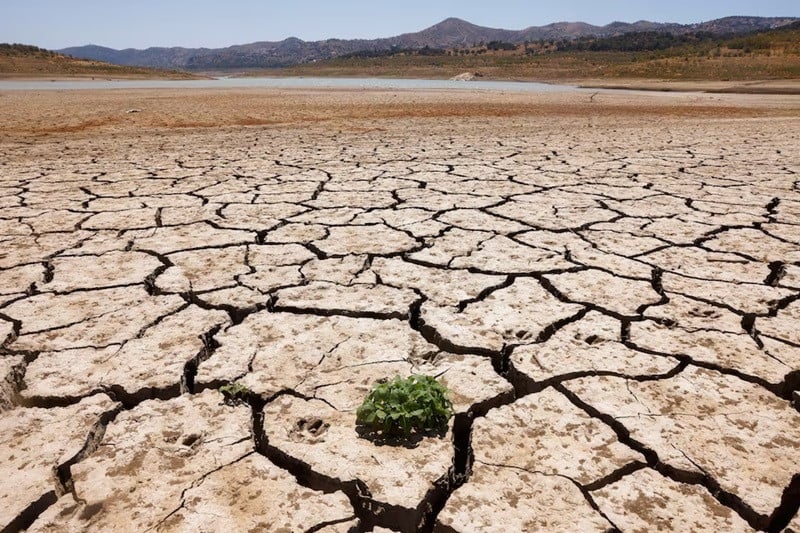The EU’s climate change tracking service said on Wednesday that each of the last 12 months was the warmest on record when compared to the previous year. At the same time, UN Secretary-General António Guterres called for immediate action to stop “climate hell.”

It was 1.63 degrees Celsius (2.9 degrees Fahrenheit) warmer around the world than it was before industrialization for the 12 months ending in May, according to the Copernicus Climate Change Service. This was the warmest 12-month period since records started being kept in 1940.
This 12-month average doesn’t mean that the world has risen above the 1.5 C (2.7 F) global warming barrier yet. This threshold is a temperature average over decades, and scientists warn that if it is crossed, the effects will be worse and can’t be fixed.
The World Meteorological Organization (WMO) of the UN said in a separate report that there is now an 80% chance that at least one of the next five years will be the first calendar year with an average temperature that temporarily exceeds 1.5C above pre-industrial levels. This is up from 66% chance last year.
António Guterres, the Secretary-General of the UN, talked about the results and emphasized how quickly the world was moving in the wrong direction and away from stabilizing its climate system.
“This kind of breach was almost impossible in 2015,” Guterres said in a speech for World Environment Day.
Guterres said that the world needs to cut fossil fuel production and use by 30% by 2030 because time is running out to change direction.
“We need an exit ramp off the highway to climate hell,” he said. “The battle for 1.5 degrees will be won or lost in the 2020s.”
“Way off course”
The main cause of climate change, carbon dioxide emissions from burning fossil fuels, reached a new high last year, even though there were global agreements to limit their release and a rapid growth in green energy.
More than three quarters of the world’s energy still comes from coal, oil, and gas, and the desire for oil is still high.
The world is “way off track” from its goal of keeping warming to 1.5 C, which was a key goal of the 2015 Paris Accord, according to WMO Deputy Secretary-General Ko Barrett.
“We must urgently do more to cut greenhouse gas emissions, or we will pay an increasingly heavy price in terms of trillions of dollars in economic costs, millions of lives affected by more extreme weather, and extensive damage to the environment and biodiversity,” he said.
Barrett called the upcoming La Nina weather conditions, which will cool things down, “a mere blip on the upward curve” of the rising temperatures felt around the world.
“We all need to know that we need to reverse this curve and we need to do it urgently,” she added.
It was 1.45 C (2.61 F) warmer than pre-industrial times last year, making it the warmest calendar year ever. According to the WMO, at least one of the next five years will likely be even warmer than 2023.
Copernicus scientists said that some unexpected events had happened, like the rapid melting of Antarctic sea ice in the past few months. However, they said that the general climate data were in line with predictions of how rising greenhouse gas emissions would warm the Earth.
The head of Copernicus, Carlo Buontempo, said, “We haven’t seen anything like this in the last few thousand years.”
It was Guterres who went after fossil fuel companies.
“The Godfathers of climate chaos – the fossil fuel industry – rake in record profits and feast off trillions in taxpayer-funded subsidies,” he added.
For example, many governments don’t let harmful drugs like tobacco be advertised. He said, “I urge every country to ban advertising from fossil fuel companies, and I urge news media and tech companies to stop taking fossil fuel advertising.”










































